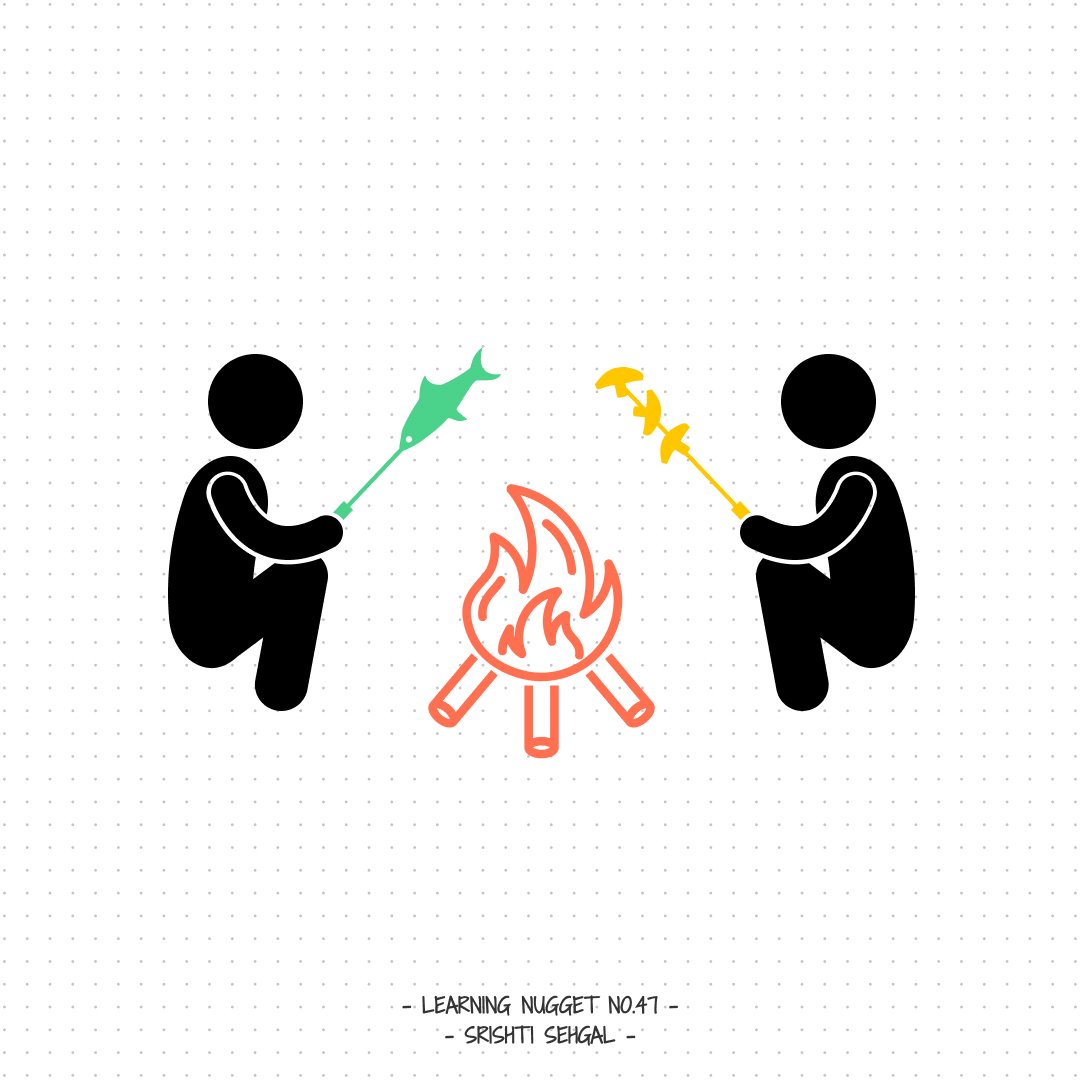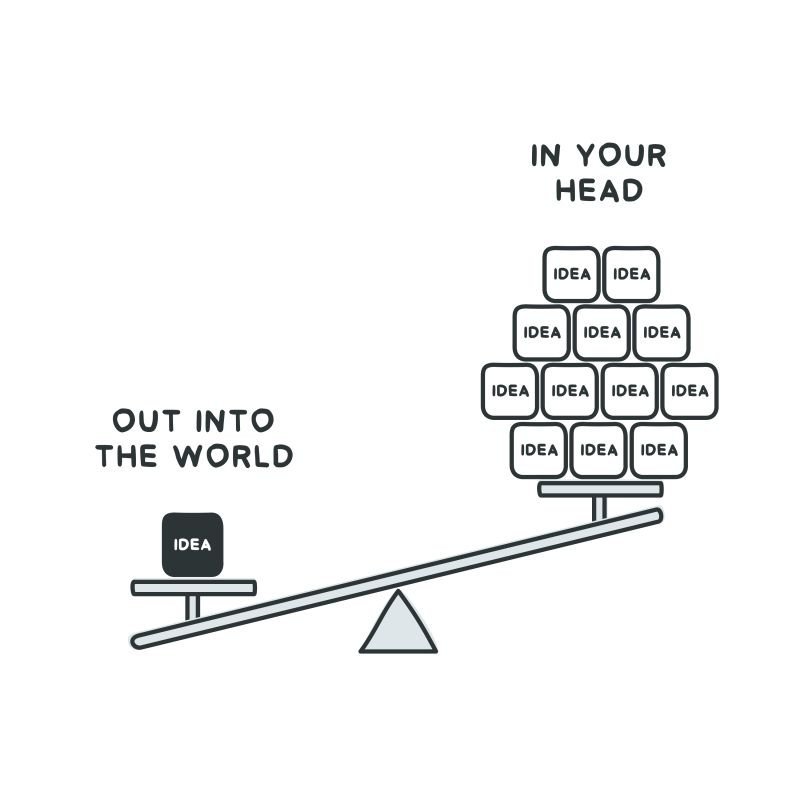Learning Nerd’s Diary #65
Welcome back Learning Nerds!
In this week’s diary we peel the onion on all things people! Learning happens best in a tribe and this week we’ll try to unpack who can be a part of your tribe and what value they can add. Are you ready?
👀 Sneak peak
Here is what I have in store for you this week -
💭 Learning About Learning: Learning is a Team Sport
🥜 Learning Nugget: Learning is like a barbecue
💥 Coolest Thing I Learnt This Week:
Mentoring Playbook
Choose your Peer Group
People can’t read your mind
🔦 Spotlight: Learning Habit Loops
Let's jump right in!
💭 Learning About Learning
Learning is often thought of as an individual pursuit, but it is actually a team sport. In order to learn, we don’t need to lock ourselves up in a room but instead, we need to open it up!
There are four key players in the learning process: ourselves, our peers, our seniors, and experts.
We are at the center, surrounded by our peers, who are in turn surrounded by our seniors, and finally, by experts. Each circle represents a different level of knowledge and experience, and each has something unique to contribute to our learning. Here is how you can make the most of these 4 players:
You
It might sound counter intuitive to have yourself on this list - but you know yourself and your context the most! Which in a way makes you your expert.
You can define why you need to learn better than anyone else can.
You are the end user - so keep questioning whether something is working for you or not. User centricity ftw eh?
Peers
Peers, are at a similar level of knowledge and experience as ourselves. Peers are often going through the same experiences as us and can provide different perspectives and insights.
They can challenge our assumptions, learn from their experiences, and develop new ideas.
They can also provide the necessary support - making us feel less alone in the learning process
They are also great accountability buddies - helping you build that learning habit
Seniors
Seniors are people that are ahead in their learning journey. They know more, understand more and have ‘been there, done that.”
Seniors can be great mentors - they can provide guidance, support, and encouragement
For people who are new to a field or who are looking to develop new skills, the experiences of seniors can give valuable insights
Experts
Experts, on the other hand, bring a wealth of knowledge and experience to the table. These are people who have spent years building and creating knowledge - forming their own opinions of the topic.
They can help us develop a deeper understanding of a subject.
They can also be great facilitators and help learn something in a structured manner
Caveat
It is important to note that the roles of these players are not fixed, and can change over time. As we continue to learn and develop our skills, we may find ourselves taking on the role of a mentor for others, or becoming an expert in our field. Similarly, our peers may become our seniors, and our seniors may become our peers.
By embracing these shifting roles, we can develop a more dynamic and supportive learning environment. We can learn from each other's experiences, share our knowledge and insights, and work together to achieve our goals. This not only benefits us as individuals, but also helps to build stronger and more resilient communities.
In order to facilitate this collaborative learning environment, it is important to create opportunities for interaction and engagement between the different players. This can be done through mentorship programs, collaborative projects, peer-to-peer learning, and other initiatives. By fostering these types of connections, we can build a culture of learning that is both inclusive and effective.
Summary
Learning is not a solitary pursuit, but rather a collaborative effort. By recognising the different roles that each player can fulfil, we can create a learning environment that is both supportive and effective.
Overall, each of the four key players in the learning process - ourselves, our peers, our seniors, and experts - has something unique to contribute. By recognising the different roles that each can fulfil, we can create a learning environment that is both collaborative and effective.
🥜 Learning Nuggets
Learning is like a barbecue
It’s best enjoyed with people and conversations.
💥 Coolest Thing I Learnt this Week
Mentoring Playbook
My friends at Offbeat have open sources their Mentoring Playbook - a short guide filled with resources and best practices. From what are the different roles a mentor can play, to a health check quiz on the mentoring relationship, to how to evaluate success - the playbook is a treasure trove of all things mentoring!
Choose your Peer Group
We’ve all heard of the saying - “We are the average of the 5 people that we spend the most time with.”
This post by Roberto Ferraro tries to think of what does this mean for the learning space. 3 questions he raised that stuck with me:
Who do we spend most of our time with?
And how does that impact our learning?
Do we strive to find people better than us from whom we can constantly learn?
People can’t read your mind. Share ideas.
Over the last few years, I have personally witnessed the power of learning in public. This newsletter wouldn’t be here without it. Sharing ideas out into the world is one of the most powerful ways of learning. You might be wrong sometimes - but being corrected is a much better way to learn than believing you are right.
🔦 Spotlight
Did a workshop on Learning Habit Loops for the good folks at Teach for India. Workshops are a great way to test frameworks - they help me build for clarity and build frameworks that work!
Curious to know more? Check out this article.
Love & Learning
Until we meet next week!
Thank you for showing up today & always!
You can get this directly in your inbox!







